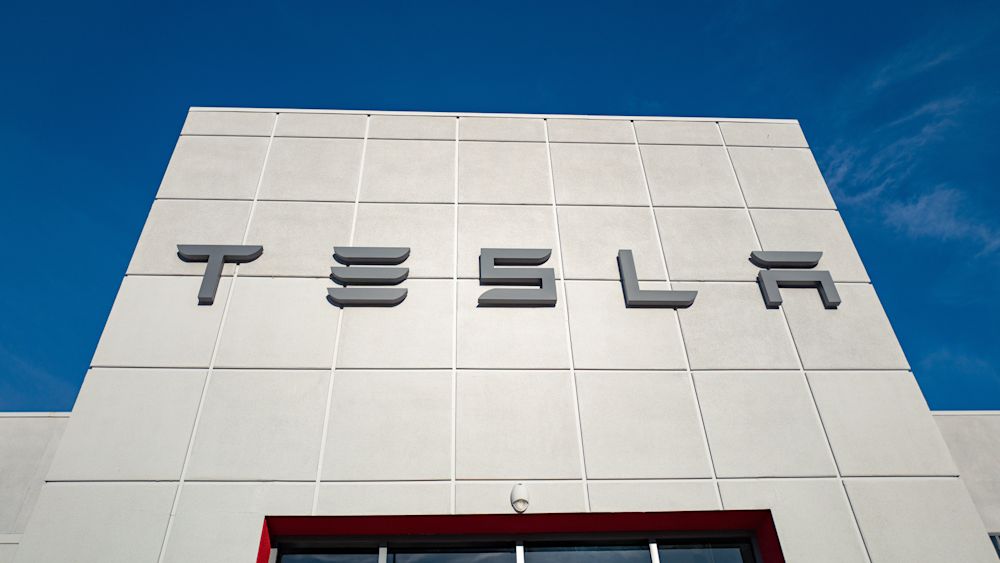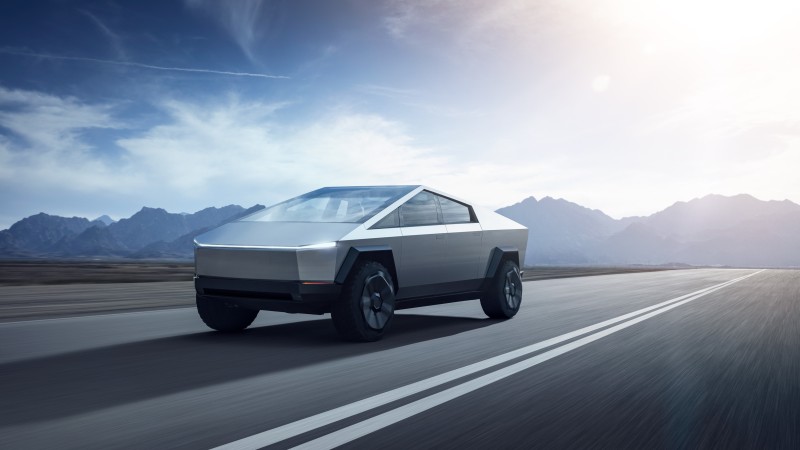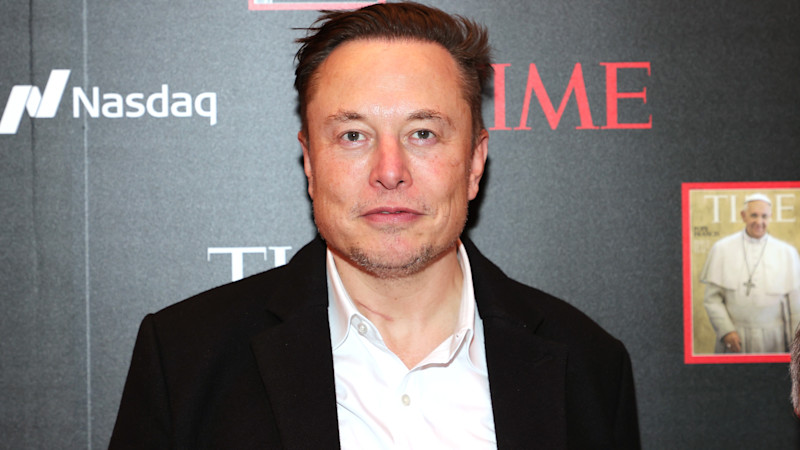- Iterate
- Meet The Team
- How Many Companies Does Tesla Own?
Table of contents
Find out more about which companies Tesla owns.

Tesla is still a relatively young company, but it’s also the most valuable car company in the world.
Betting on the electric vehicle market early and being the first with lithium ion batteries — steering away from controversial cobalt — as well as expanding to the solar energy space have proven a winning formula for the rapidly growing and highly innovative technology company.
And that growth has been bolstered by key acquisitions and powerful subsidiaries, which both increase production capacity and speed, and lower end costs for consumers.
The Org has looked at the nine companies Tesla owns and why.
Tesla’s history
Tesla Motors was founded in 2003 by Martin Eberhard and Marc Tarpenning, named after electrical engineer Nikola Tesla. Elon Musk became the company’s largest shareholder in 2004 and chairman, and has served as CEO since 2008.
Since the start, the company has designed and manufactured electric cars. Over the years, it has added services such as battery energy storage, solar panels, solar roof tiles, and additional related services.
Musk says the company’s purpose is using electric vehicles and solar power to expedite the world’s move to sustainable energy. In 2017, Tesla Motors changed its name to Tesla Inc. to better suit that mission.
To undertake all of its functions, Tesla has Giga factories in Nevada, New York, Shanghai, Berlin, and Austin, Texas. And it’ll need it — the company has become one of the largest suppliers of battery electric vehicles and plug in electric vehicles, reaching sales of more than 2.3 million cars at the end of 2021.

What is Tesla known for?
Tesla released its first electric vehicle, the Roadster, in 2008, followed by the Model S, Model X SUV, Model 3 and Model Y crossover. It also has two trucks — the Tesla Semi and the Cybertruck.
But it is the Model 3 that has proved the most popular with consumers. The model is the best-selling electric vehicle in the world and in 2021 it became the first electric car to have been sold 1 million times.
Due to the popularity of the vehicles, and the company’s battery and solar ventures, Tesla reached a valuation of $206 billion in early 2020, surpassing Toyota. In 2021, it went on to hit a market capitalization of $1 trillion — the sixth company to reach that height in U.S. history.
Who are Tesla’s partners?
To reach the market dominance Tesla has achieved, it has had to strategically partner with a number of companies and organizations along the way.
One of the most powerful relationships for the company has been with Panasonic, which develops nickel-based lithium-ion battery cells for the electric vehicles. Panasonic works closely with Tesla engineers to modify the chemistry in the batteries and optimize them for use in high-powered electric cars.
The partnership kicked off in 2010 and started with battery production out of Giga Nevada. The company then collaborated on the development of photovoltaic cells and nodules at Giga New York — a factory solely focused on solar — before leaving the solar business in 2020.
Despite selling its shares in Tesla in 2021, Panasonic says it will retain the same business partnership going forward.
In 2016, Tesla established a five-year battery research and development partnership at Dalhousie University in Nova Scotia, partnering with lead researcher Jeff Dahn. Then, in 2023, Tesla signed a sales agreement with Piedmont Lithium that allows the automaker to buy high-purity lithium ore for up to three years.
Other formative partnerships for Tesla have been with Toyota, which saw Tesla buy a Toyota factory, and Daimler AG, which both invested in and worked collaboratively with the EV maker.
Tesla insurance
In 2017, a report came out that said Tesla cars were almost twice as likely to be in crashes than comparable vehicles and were more than twice as expensive to fix.
In response, the American Automobile Association raised insurance rates for Tesla owners by 30 percent.
Despite firing back, Tesla was unable to change the situation and, later that year, launched a partnership with Liberty Mutual Insurance Company offering Tesla owners an insurance plan designed for them.
That was superseded by a partnership with State National Insurance in 2019, but only for California drivers. However, Musk said that due to data received from State National Insurance, Tesla would be launching its own insurance company for Tesla drivers, which would offer personalized pricing based on individual vehicle data.
Currently Tesla Insurance is available in Arizona, California, Illinois, Ohio and Texas.
What companies has Tesla acquired?
Due to Tesla’s high level of vertical integration, something rare for an automaker, the company has acquired a range of others to further its research and development and production capabilities.
In 2016, the company made two very high profile acquisitions: Grohmann Engineering and SolarCity.
Grohmann Engineering
The automaker paid more than $130 million for German-based Grohmann Engineering, which specializes in the design and development of automated manufacturing systems. Acquiring the company, which had 700 employees at the time, allowed Tesla to increase the automation and effectiveness of its manufacturing process.
SolarCity
The acquisition of SolarCity, which was done through a $2.6 billion all-stock deal, gave Tesla the manpower and knowhow to enter the photovoltaic market, and form its subsidiary Tesla Energy. Tesla took over SolarCity’s Buffalo, NY, factory and merged the company with its existing battery energy storage products division, and now uses Giga New York solely for solar.
Through the acquisition, which has been controversial due to Musk’s familial relationship to the SolarCity founders, Tesla now provides solar panels (built by other companies for Tesla), the Tesla Solar Roof, the Tesla Solar Inverter, and home energy and large-scale energy storage devices.
Perbix Machine Co. Inc.
In 2017, Tesla acquired Perbix Machine Co. Inc. for an estimated $10.5 million, although the terms were not disclosed. Founded in 1976, Perbix designs, builds and services highly-automated, high-volume manufacturing machinery that Tesla said would “accelerate the world’s transition to sustainable energy.”
With the acquisition, Tesla was able to make more of its vehicle parts in-house, giving it more control of auto production.
Then, in 2019, Tesla acquired two battery companies: Maxwell Technologies and Hibar Systems.
Maxwell Technologies
Maxwell Technologies specializes in making ultracapacitors, devices capable of holding much more energy than standard capacitors, and it was thought that was the technology Tesla was after. However, Tesla sold Maxwell Technologies to ultracapacitor company UCAP Power in 2021, which said it had purchased the “Maxwell brand [and] Maxwell Technologies Korea business, as well as other assets from Maxwell Technologies,” but kept Maxwell’s dry battery electrode process methodology.
Tesla CEO Elon Musk confirmed the sale in a series of tweets, noting the irony of selling off technology he had personally investigated. Musk said lithium-ion has Maxwell's capacitor technology “covered.”
At Tesla’s Battery Day 2020, Musk said the methodology would be part of a next-generation 4680 cell design the company is working on bringing to market.
Hibar Systems
The acquisition of Hibar Systems, which designs and builds high-precision dispensing pumps and filling systems — including automated vacuum filling systems for lithium-ion batteries used in electric vehicles, was an obvious next step, allowing Tesla to produce battery cells in house and lowering costs and reliance on Panasonic.
DeepScale
Also in 2019, Tesla acquired computer vision startup DeepScale to help it develop driver assistance systems for driverless cars that could be used like “robotaxis.”
DeepScale’s technology uses processors and sensors that work with mapping, planning and control systems to allow cars to make sense of what’s going on around them.
ATW Automation
In 2020, Tesla went on to acquire German ATW Automation, a subsidiary of Canadian ATS Automation Tooling Systems Inc., which builds battery and transmission assembly lines for major automakers like BMW and Daimler. ATW had 120 employees and had completed more than 20 battery production lines for international automakers at the time of purchase. The move comes as Tesla ramps up at its Giga Berlin site.
SilLion
Colorado-based startup battery startup SiILion, Inc. was acquired by Tesla in late 2021. Although only confirmed through a patent filing, rumors about the acquisition had swirled for years. One of SiILion co-founders Tyler Evans and Daniela Molina Piper’s most important patents called “large battery anodes containing silicon particles” is now listed as owned by Tesla. According to Electrive, SilLion’s anode technology will be incorporated into Tesla’s 4680 cells.
Springpower
Also in 2021, Tesla bought patents filed by Springpower, which layout how to recirculate the chemical solution in cathodes, removing the need for expensive water treatment. And it did so for just $3. Due to its high level of integration, Tesla operates like more than a dozen startups within one company. Due to that, it has a myriad of subsidiaries, with more than 377 listed in its SEC filing.
Elon Musk
It’s not just Tesla that has a range of companies under its belt, it’s also CEO Elon Musk.
As well as co-founding and running Tesla, Musk co-founded and leads SpaceX, Neuralink and The Boring Company.

SpaceX
As lead designer at SpaceX, Musk oversees the development of rockets and spacecraft for missions to Earth orbit and ultimately to other planets. SpaceX is also developing a satellite internet constellation named Starlink to provide commercial internet service and Starship, a privately funded, fully reusable, super heavy-lift launch system for interplanetary spaceflight.
Neuralink
Musk is also CEO of Neuralink, which is developing ultra-high bandwidth brain-machine interfaces to connect the human brain to computers. The company says it is creating the future of brain interfaces: building devices now that will help people with paralysis and inventing new technologies that will expand people’s abilities, their communities and the world.
The Boring Company
Musk also launched The Boring Company, which he says combines fast, affordable tunneling technology with an all-electric public transportation system in order to alleviate urban congestion and enable high-speed, long-distance travel.
The Boring Company built a 1.15 mile R&D tunnel in Hawthorne, and is currently constructing Vegas Loop, a public transportation system at the Las Vegas Convention Center.
Previously, Musk co-founded and sold PayPal and Zip2, one of the first internet maps and directions services.
Get in front of millions of visitors and job seekers.
- Showcase your company culture to a vast community of professionals
- Host your team on a free org chart to keep employees aligned
- Post jobs on our free job platform for high growth startups


The ORG helps
you hire great
candidates
Free to use – try today